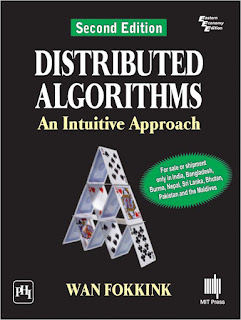Second Edition

The new edition of a guide to distributed algorithms that emphasizes examples and exercises rather than the intricacies of mathematical models.
The Author
WAN FOKKINK is Professor of Theoretical Computer Science at the VU University, Amsterdam.
The Book
This book offers students and researchers a guide to distributed algorithms that emphasizes examples and exercises rather than the intricacies of mathematical models. It avoids mathematical argumentation, often a stumbling block for students, teaching algorithmic thought rather than proofs and logic. This approach allows the student to learn a large number of algorithms within a relatively short span of time. Algorithms are explained through brief, informal descriptions, illuminating examples, and practical exercises. The examples and exercises allow readers to understand algorithms intuitively and from different perspectives. Proof sketches, arguing the correctness of an algorithm or explaining the idea behind fundamental results, are also included. The algorithms presented in the book are for the most part “classics,” selected because they shed light on the algorithmic design of distributed systems or on key issues in distributed computing and concurrent programming.
This second edition has been substantially revised. A new chapter on distributed transaction offers up-to-date treatment of database transactions and the important evolving area of transactional memory. A new chapter on security discusses two exciting new topics: blockchains and quantum cryptography. Sections have been added that cover such subjects as rollback recovery, fault-tolerant termination detection, and consensus for shared memory. An appendix offers pseudocode descriptions of many algorithms. Solutions and slides are available for instructors.
Distributed Algorithms can be used in courses for advanced undergraduates or beginning post-graduate students in computer science, or as a reference for researchers in the field.
Contents
Preface
1. Introduction
2. Preliminaries
3. Snapshots
4. Waves
5. Deadlock Detection
6. Termination Detection
7. Garbage Collection
8. Routing
9. Election
10. Anonymous Networks
11. Synchronous Networks
12. Consensus with Crash Failures
13. Consensus with Byzantine Failures
14. Mutual Exclusion
15. Barriers
16. Distributed Transactions
17. Self-Stabilization
18. Security
19. Online Scheduling
• A. Appendix: Pseudocode Descriptions
• References
• Index
Buy this MIT Press book from our website. Click http://social.phindia.com/1Ly6yeQC